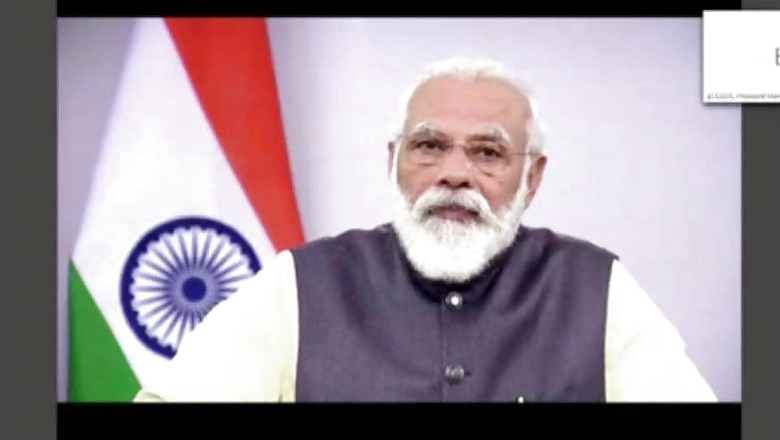
views
Prime Minister Narendra Modi on Friday said India's grassroots health system is helping it ensure one of the best recovery rates in the world as he highlighted the government's efforts to make the fight against the pandemic a people's movement.
In his first address to the world body after India was overwhelmingly elected as a non-permanent member of the United Nations Security Council last month, Modi said the coronavirus pandemic has "severely tested" the resilience of all nations.
"In India, we have tried to make the fight against the pandemic a people's movement, by combining the efforts of government and society," Modi said in his virtual address to the High-Level Segment of ECOSOC, which comes as the pandemic is ravaging the world and causing unprecedented health and economic challenges.
Modi said in India's fight against COVID-19, the grassroots health system is helping the country ensure one of the best recovery rates in the world.
India's COVID-19 tally crossed the 10 lakh-mark on Friday. So far 25,602 people have died in India due to COVID-19, which has infected over 1.3 crore people globally and killed nearly 6 lakh others. In India, the total number of recovered cases rose to 6,35,756 on Friday.
Highlighting that his government has given the highest priority to reach benefits to poor households and announced a package of more than $300 billion, Modi said it will bring the economy back on track, build modern infrastructure and put in place a technology-driven system.
"We have put forward a vision of 'Atmanirbhar Bharat' a self-reliant and Resilient India, integrated with the global economy," he said addressing the session 'Multilateralism after COVID 19: what kind of UN do we need at the 75th anniversary?'
Modi said that as nations mark the 75th anniversary of the founding of the United Nations, it is an occasion to recognise the UN's many contributions to human progress and also an opportunity to assess the world body's role and relevance in today's world and to shape a better future for it.
He said India contributed to shaping the ECOSOC agenda, including the Sustainable Development Goals (SDGs) and through its domestic efforts, India is again playing a salient role in achieving Agenda 2030 and the SDGs.
"We are also supporting other developing countries in meeting their Sustainable Development Goals. India is home to one-sixth of humanity. We are mindful of our weight and responsibility. We know that if India succeeds in achieving its development objectives, it will go a long way in achievement of global goals," Modi said, underlining that the Indian government has taken a "whole-of-society" approach- by engaging the states, local governments, civil society, communities and people.
"Our motto is 'Sabka Saath, Sabka Vikaas, Sabka Vishwas' - meaning 'Together, for everyone's growth, with everyone's trust'. This resonates with the core SDG principle of leaving no one behind. Be it access to nutrition, health education, electricity or housing - we are making great progress through our inclusive programmes," he added.
Modi also outlined India's efforts towards inclusive development. As the world commemorated the 150th birth anniversary of Mahatma Gandhi last year, India achieved full sanitation coverage in its 600,000 villages. In five years, over 110 million household toilets have been built which improved rural sanitation cover from 38 per cent to 100 per cent. He said the government's massive awareness generation programmes are empowering India's women.
In the last six years, the government has opened 400 million bank accounts for the unbanked, out of which 220 million are owned by women.
"We have leveraged the power of technology for financial inclusion. This is based on the trinity of a unique identity number, a bank account, and a mobile connection for everyone. It has allowed us to make Direct Benefit Transfers of 150 billion dollars to over 700 million persons. Our food security programmes reach 813 million citizens," he said.
"Our 'Housing for All' programme will ensure that every Indian will have a safe and secure roof over her head by 2022, when India completes 75 years as an independent nation. By then, 40 million new homes would have been made under this programme," he said.
Modi said India's 'Ayushmaan Bharat' scheme is the world's largest health protection programme, covering 500 million individuals. He said that over the past few years, India has reduced 38 million tonnes of carbon emissions annually. "This was achieved by electrifying our villages, providing clean cooking fuel to 80 million poor households, and introduction of energy efficient measures," he said.
India has set a target to install 450 Gigawatt of renewable energy and restore 26 million hectares of degraded land by 2030, he said. He also said that India has launched one of the largest campaigns for cleanliness and discouraged usage of single-use plastic.
Modi said other developing countries can learn from the scale and success of India's development programmes. "And from the technologies and innovations we have deployed. It is this realisation that under-pins India's own development partnership with the global South," he said.
"Be it earthquakes, cyclones, Ebola crisis or any other natural or man-made crisis, India has responded with speed and solidarity. In our joint fight against COVID, we have extended medical and other assistance to over 150 countries. We also helped create a SAARC COVID emergency fund in our neighborhood," he said.
(With inputs from PTI)














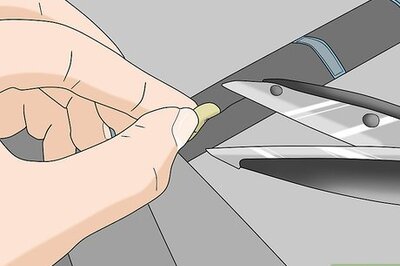

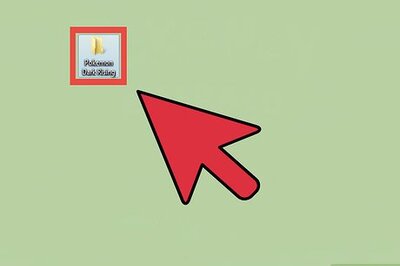
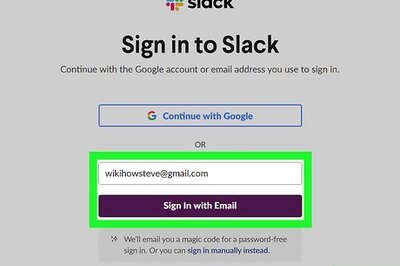
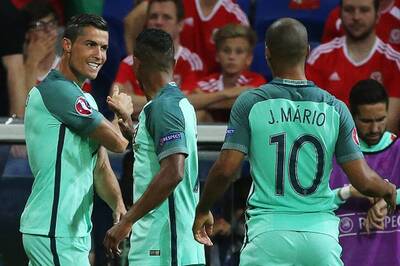

Comments
0 comment